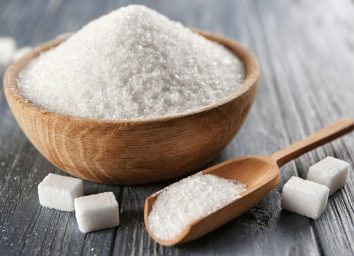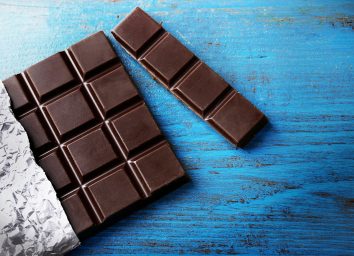6 Incredible Effects of Giving up Coffee for a Month, Say Dietitians

From kickstarting your morning to providing an afternoon pick-me-up, drinking coffee is a tried-and-true way to get a much-needed boost of energy. Although coffee consumption is tied to a range of benefits—including decreased risk of Alzheimer’s disease, improved mood, and even potentially helping you live longer, there are also some less appealing side effects. For instance, according to the National Library of Medicine, too much caffeine can lead to anxiety, insomnia, restlessness, a faster heart rate, headaches, and dependence on caffeine. They also mention that coffee may increase the stomach acid in your body, which for some, can lead to heartburn. If any of these side effects have been impacting your life and you’ve been considering giving up coffee, chances are you’ve been intimidated to start.
Kicking your coffee habit may initially sound quite daunting, especially if you’re worried about withdrawal symptoms. According to the Cleveland Clinic, dependence on caffeine is not technically an addiction, but it can absolutely lead to withdrawal if you decide to quit. Symptoms of withdrawal include possible headaches, sleepiness, nausea, and irritability. While these symptoms may feel intimidating, it can help to focus on the benefits that may come from kicking your coffee habit.
To get the breakdown of the effects of giving up coffee for a month, we consulted our Medical Expert Board members Tammy Lakatos Shames, RDN, CDN, CFT, and Lyssie Lakatos, RDN, CDN, CFT, also known as The Nutrition Twins. Read on to learn more about how breaking up with coffee can impact your body. And for more, don’t forget to check out why Yerba Mate Tea May Help You Focus Better Than Coffee.
Better sleep
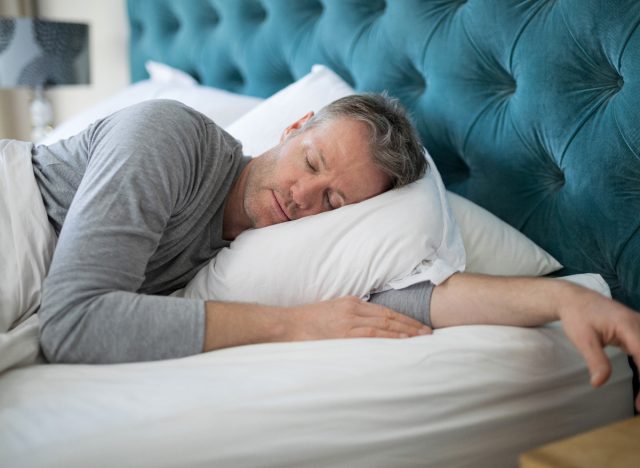
Caffeine is a stimulant, which means it speeds up the activity in your brain and nervous system. While this can help keep you alert during the day, it may end up disrupting your sleep cycle at night, ultimately causing drowsiness the following day. This can even be true if you drink your coffee at least six hours before going to bed, the Nutrition Twins say.
Giving up caffeine could reverse these effects, allowing you to not only get more restful sleep, but fall asleep in a shorter amount of time.
Decreased risk of tooth decay
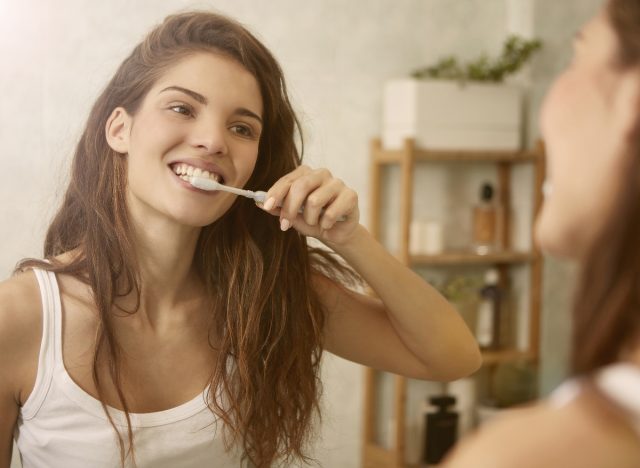
In addition to being notorious for staining teeth, coffee is known for weakening them, as well.
“The caffeine in coffee can cause dry mouth, and saliva fights bacteria. So, the drier your mouth is, the greater risk of cavities,” say the Nutrition Twins.
Studies also show that highly-acidic drinks can result in enamel wear and decay. Given the high acidity of coffee, skipping out on your daily java could promote healthier, whiter teeth.
More youthful skin
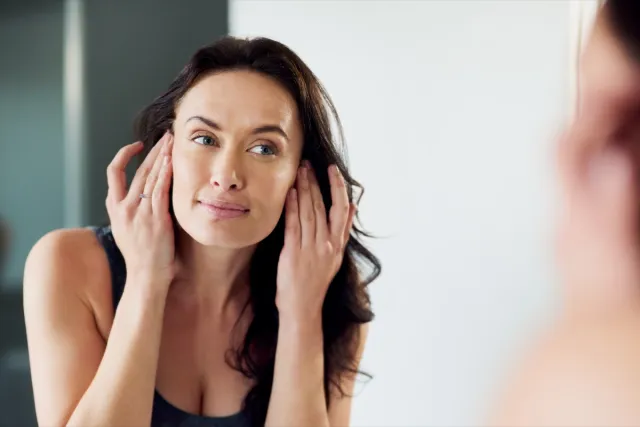
Although coffee beans are packed with free radical damage-fighting antioxidants, the skin-promoting benefits are primarily obtained through topical products. In fact, drinking coffee has actually been suggested to have possible skin aging effects.
In particular, “Caffeine slows down the rate at which the body produces collagen—the protein that keeps your skin elasticity,” the Nutrition Twins say. When the amount of collagen is decreased, the skin starts to sag, and wrinkles form.
Lower blood pressure
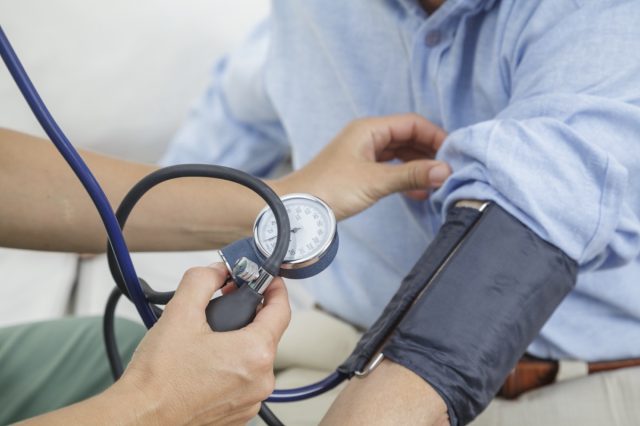
“Blood pressure rises after having caffeine, and this may be especially true with a younger population,” the Nutrition Twins say.
According to the Mayo Clinic, some researchers think caffeine could block a hormone that helps your arteries widen, while others believe caffeine triggers the release of adrenaline, which causes blood pressure to spike. Regardless, caffeine is still not known to have a long-term effect on your blood pressure. However, cutting caffeine could help combat the short-term spikes in your levels.
Better nutrient absorption

According to the Nutrition Twins, giving up coffee means “you may be able to absorb your nutrients better.”
A review published in Food Science and Quality Management shows that high levels of caffeine can interfere with the absorption of nutrients, including B vitamins and minerals like calcium, iron, and magnesium, and that it can also lead to nutrient depletion of vitamins like B6.
They do make the distinction that sticking to around 300 milligrams of caffeine or less per day should be fine and most likely won’t cause any significant interactions with these nutrients. To put this into perspective, there are about 95 milligrams of caffeine in an average cup of black coffee and about 63 in one ounce of espresso.
Weight loss
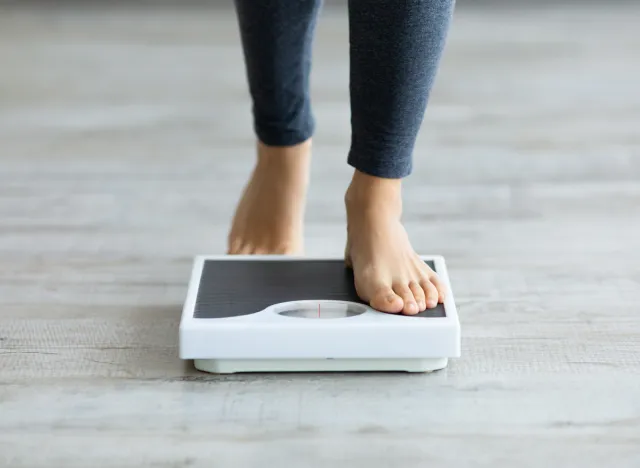
While black coffee contains virtually no calories, it’s not the most popular option. Sugar, syrup, and high-calorie creamers might make your bean juice taste better, but they can also increase the likelihood of weight gain.
“For many, their daily one-to-two cups of coffee may be adding more than 500 calories a day, which could result in roughly a one-pound weight loss each week after giving up coffee,” say the Nutrition Twins. “Plus, by reducing consumption of sugar and cream, you ingest less inflammation-promoting foods, like added sugar.”
- Source: https://www.eatthis.com/secret-side-effects-drinking-coffee/
- Source: https://www.tandfonline.com/doi/abs/10.1179/174313206X152546
- Source: https://www.sciencedirect.com/science/article/abs/pii/S0165032719301442
- Source: https://www.ahajournals.org/doi/full/10.1161/CIRCULATIONAHA.115.017341
- Source: https://medlineplus.gov/caffeine.html
- Source: https://my.clevelandclinic.org/health/articles/15496-caffeine-how-to-hack-it-and-how-to-quit-it
- Source: https://www.sciencedirect.com/science/article/abs/pii/S1087079207000937
- Source: https://jada.ada.org/article/S0002-8177(20)30599-7/fulltext
- Source: https://www.ncbi.nlm.nih.gov/pmc/articles/PMC2516950/
- Source: https://pubmed.ncbi.nlm.nih.gov/21564138/
- Source: https://www.ncbi.nlm.nih.gov/pmc/articles/PMC4206198/

